In the vast ocean of the internet, small businesses often find themselves sailing against strong tides, struggling to make their mark. However, with the right compass and strategy, they can not only navigate these waters but thrive. Welcome aboard as we embark on a voyage into the world of small business search engine optimization (SEO), where creativity and strategy converge to make waves.
1. The SEO Blueprint: Laying a Strong Foundation
Before you set sail, you must chart your course. SEO begins with a strong foundation:
- Keyword Treasure Hunt: Just like buried treasures, keywords hold immense value. Research and discover the keywords that resonate with your business, products, and services. Tools like Google’s Keyword Planner can be your treasure map.
- Website Architecture: Your website is your ship. Ensure it’s well-structured, with easy navigation and responsive design. The better your ship, the smoother the journey.
2. Content Creation: The Art of Storytelling
Imagine your content as the wind in your sails, propelling you forward:
- Quality Over Quantity: Craft compelling, informative, and engaging content. Be it blog posts, videos, or infographics, quality will always outrank quantity.
- Tell Your Story: Every business has a unique story. Share yours through authentic storytelling. This not only captivates readers but also builds trust.
3. On-Page SEO: Navigating Your Website
Now that you’re on your way, it’s time to fine-tune your ship:
- Meta Magic: Optimize meta titles and descriptions for every page. These snippets act as your ship’s flag, catching the eye of searchers.
- Content Formatting: Break content into digestible chunks with headers, bullet points, and visuals. Smooth navigation keeps visitors on board.
4. Off-Page SEO: Building Alliances
No sailor is an island; building alliances can help you weather storms:
- Backlinks: Cultivate a network of high-quality backlinks from reputable websites. These act as endorsements, boosting your credibility.
- Social Signals: Stay active on social media. It not only broadens your reach but also signals search engines that your ship is afloat and relevant.
5. Local SEO: Navigating the Local Waters
For small businesses, local SEO is a lighthouse guiding nearby sailors:
- Google My Business: Claim and optimize your Google My Business listing. It’s your digital anchor in local searches.
- Online Reviews: Encourage happy customers to leave reviews. Positive reviews can be a windfall.
6. Analytics and Course Correction
You can’t navigate without instruments:
- Track Progress: Use tools like Google Analytics and Search Console to monitor your voyage. Are you on course or adrift?
- Course Correction: Be ready to adjust your strategy as needed. SEO is not a one-time voyage; it’s an ongoing journey.
7. The Mobile Advantage
The mobile sea is vast, and it’s where your audience often sails:
- Mobile Optimization: Ensure your website is mobile-friendly. Google values it, and so do mobile users.
- Voice Search: With the rise of voice-activated devices, optimizing for voice search is the new frontier.
8. Patience: The Virtue of SEO Mariners
SEO, like sailing, requires patience:
- Time and Effort: Rome wasn’t built in a day, and neither is SEO success. It takes consistent effort over time.
- Adapt and Evolve: Stay current with SEO trends. The digital seascape is ever-changing; adaptability is your lifebuoy.
9. Seek Guidance and Navigate with Care
Consider hiring an SEO agency or consultant as your navigation expert. They can be your seasoned captain in these unfamiliar waters.
If you’re a small business owner, you’re likely aware of the importance of having a strong online presence. But how can you improve your visibility and attract more customers to your website? The answer lies in search engine optimization (SEO). In this comprehensive guide, we’ll walk you through the essential steps to optimize your small business for search engines.
1. Keyword Research and Strategy
- Start by conducting keyword research to identify the terms and phrases your target audience is searching for. Tools like Google’s Keyword Planner and SEMrush can help.
- Develop a keyword strategy that focuses on both short-tail (generic) and long-tail (specific) keywords relevant to your business.
2. High-Quality Content Creation
- Content is king in SEO. Create valuable, relevant, and engaging content that addresses your audience’s needs and questions.
- Regularly update your blog with fresh content to keep your website active and attract more visitors.
3. On-Page Optimization
- Optimize your website’s on-page elements, including:
- Title Tags: Craft compelling and keyword-rich title tags for each page.
- Meta Descriptions: Write concise and enticing meta descriptions to improve click-through rates.
- Header Tags: Use header tags (H1, H2, H3) to structure your content and make it more readable.
- URL Structure: Keep URLs short, descriptive, and keyword-friendly.
4. Mobile Optimization
- Ensure your website is mobile-responsive. Google prioritizes mobile-friendly websites in its rankings.
5. Local SEO
- Claim and optimize your Google My Business listing. Include accurate business information, photos, and customer reviews.
- Encourage satisfied customers to leave reviews on platforms like Google, Yelp, and Facebook.
6. Off-Page SEO
- Build high-quality backlinks from reputable websites within your industry. Guest posting, outreach, and content promotion can help.
- Engage with your audience on social media platforms to increase your online presence and brand authority.
7. Technical SEO
- Improve your website’s loading speed, as slow sites can lead to higher bounce rates.
- Ensure your website’s architecture is well-organized and easy to navigate.
8. Monitoring and Analytics
- Use tools like Google Analytics and Google Search Console to track your website’s performance.
- Monitor keyword rankings, traffic, and conversion rates to assess the effectiveness of your SEO efforts.
9. Consistency and Patience
- SEO is a long-term strategy. Results may take several months to become noticeable, so be patient and stay consistent with your efforts.
10. Seek Professional Help
- If SEO feels overwhelming, consider working with an SEO expert or agency. They can provide valuable insights and expertise to accelerate your progress.
By following these steps and continually optimizing your website, you can improve your small business’s search engine visibility, attract more organic traffic, and ultimately grow your online presence. Remember that SEO is an ongoing process, so stay committed to refining your strategy over time.
Yes, SEO (Search Engine Optimization) can be highly effective for small businesses, and here’s why:
- Cost-Effective Marketing: SEO is cost-effective compared to traditional advertising methods. It allows small businesses to compete with larger ones on a level playing field without the need for a massive marketing budget.
- Increased Online Visibility: When you optimize your website for search engines, it becomes more visible in search results. This increased visibility can lead to more organic (unpaid) traffic to your website.
- Targeted Traffic: SEO helps you target specific keywords and phrases relevant to your business. This means you attract visitors who are actively searching for products or services you offer, increasing the chances of conversion.
- Builds Credibility: Ranking high in search results can enhance your business’s credibility. Users often trust websites that appear at the top of the search results pages.
- Local SEO for Local Businesses: For small businesses with a physical presence, local SEO can be especially beneficial. It helps you appear in local search results, making it easier for nearby customers to find and visit your store.
- Long-Term Strategy: SEO is a long-term strategy that can continue to drive results over time. Once your website ranks well for target keywords, you can maintain that position with ongoing optimization efforts.
- Measurable Results: You can track and measure the results of your SEO efforts using various tools like Google Analytics. This data allows you to refine your strategy and focus on what works best for your business.
- Competitive Advantage: Many small businesses neglect SEO, so investing in it can provide a competitive advantage in your industry.
- Adaptability: SEO strategies can adapt to changes in consumer behavior and search engine algorithms. This flexibility allows small businesses to adjust their tactics as needed.
However, it’s essential to note that small business search engine optimization is not a quick-fix solution. It requires time, effort, and patience to see significant results. It’s also a continually evolving field, so staying up-to-date with best practices is crucial. While small businesses can handle some aspects of SEO on their own, many choose to work with SEO professionals or agencies to maximize their results. Overall, small business search engine optimization can be a valuable asset for small businesses looking to establish and expand their online presence.
SEO, or Search Engine Optimization, in the context of small businesses, refers to the practice of optimizing a company’s online presence to improve its visibility in search engine results pages (SERPs). Here’s a breakdown of what SEO means for small businesses:
- Website Optimization: Small businesses often have websites as their primary online presence. SEO involves optimizing the website’s structure, content, and technical aspects to make it more search engine-friendly. This includes keyword research, on-page optimization, and improving website speed and user experience.
- Local SEO: For small businesses with a physical location, local small business search engine optimization is crucial. It involves optimizing online profiles and content to appear in local search results. This helps attract nearby customers looking for products or services, such as “restaurants near me” or “plumbers in [city].”
- Keyword Research: Identifying and targeting relevant keywords and phrases that potential customers are searching for. Small businesses can focus on niche keywords to compete effectively in their specific industry.
- Content Creation: Developing high-quality, informative, and engaging content that resonates with the target audience. Content can include blog posts, articles, videos, and infographics, among other formats.
- Link Building: Acquiring high-quality backlinks from reputable websites in the same or related industries. Backlinks can improve a small business’s authority and search engine rankings.
- Mobile Optimization: Ensuring that the website is mobile-friendly since many users access websites via smartphones. Mobile optimization is a critical factor in search rankings.
- Social Media Integration: Integrating social media platforms with the website and using them to share content, engage with customers, and build brand awareness.
- Analytics and Monitoring: Regularly monitoring website performance, traffic, and rankings using tools like Google Analytics. This data helps small businesses make informed decisions and adjust their SEO strategies.
- Competitive Analysis: Studying competitors’ SEO strategies to identify strengths and weaknesses and discover opportunities for improvement.
- User Experience (UX): Ensuring that the website provides a positive user experience, with easy navigation, fast loading times, and mobile responsiveness.
- Reviews and Reputation Management: Encouraging and managing online reviews to build a positive online reputation, which can influence search engine rankings and customer trust.
- Continuous Improvement: SEO is an ongoing process. Small businesses should regularly update and refine their SEO strategies to adapt to changing search engine algorithms and consumer behavior.
In summary, SEO for small businesses is about optimizing their online presence to increase visibility, attract potential customers, and compete effectively in their respective markets. It’s a multifaceted approach that involves various strategies and tactics, all aimed at improving the website’s search engine rankings and overall online performance. Small businesses can choose to handle SEO in-house, work with freelancers, or hire professional SEO agencies to help them achieve their online marketing goals.
Conclusion: Setting Sail for SEO Success
Small business SEO may seem like a vast ocean at first, but with the right strategies and perseverance, you can sail towards success. Remember, it’s not just about reaching your destination; it’s about enjoying the journey and becoming a seasoned SEO mariner. So, hoist your SEO sails, small business search engine optimization, embrace the challenges, and set a course for digital prominence! More. More.


